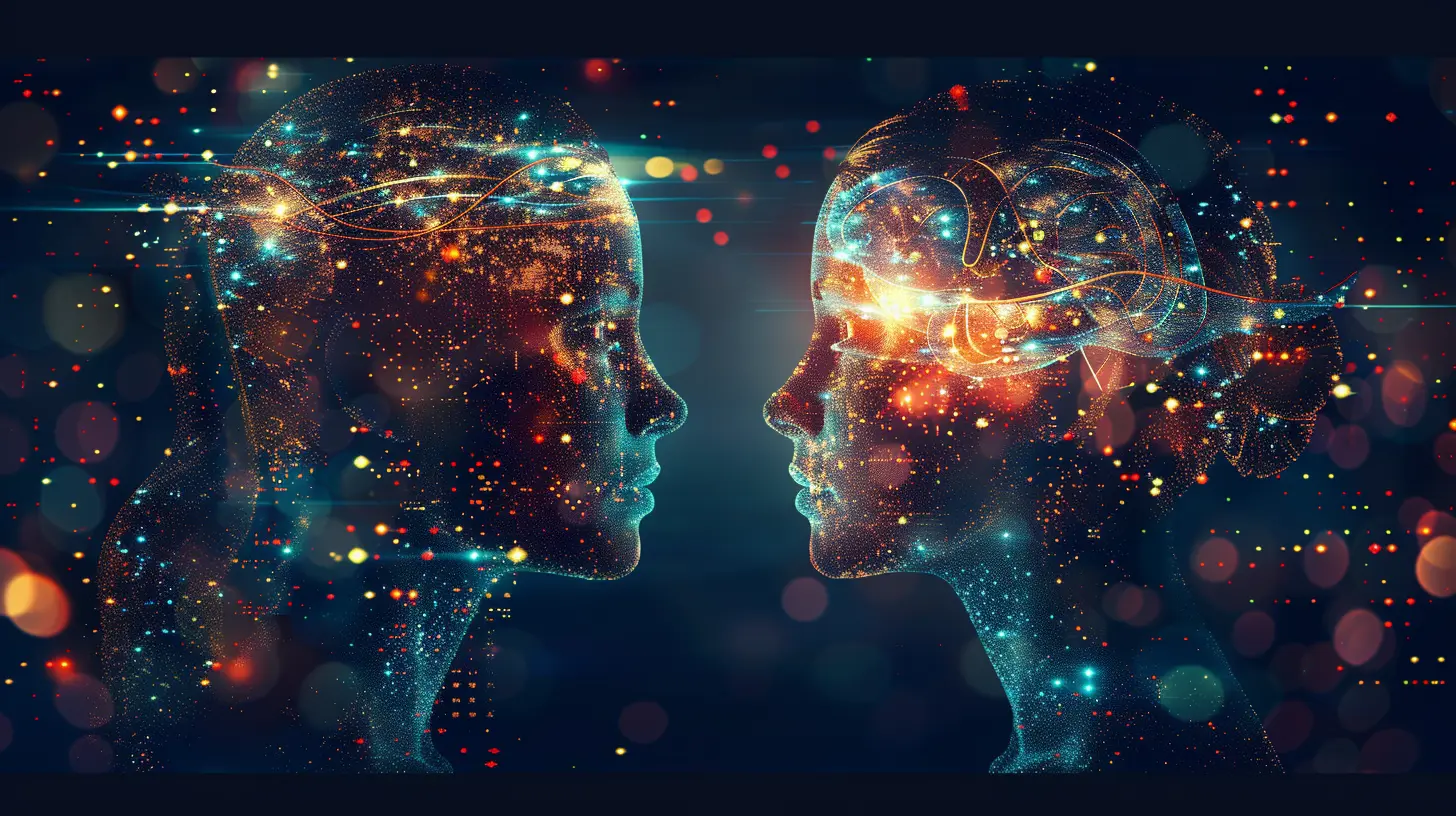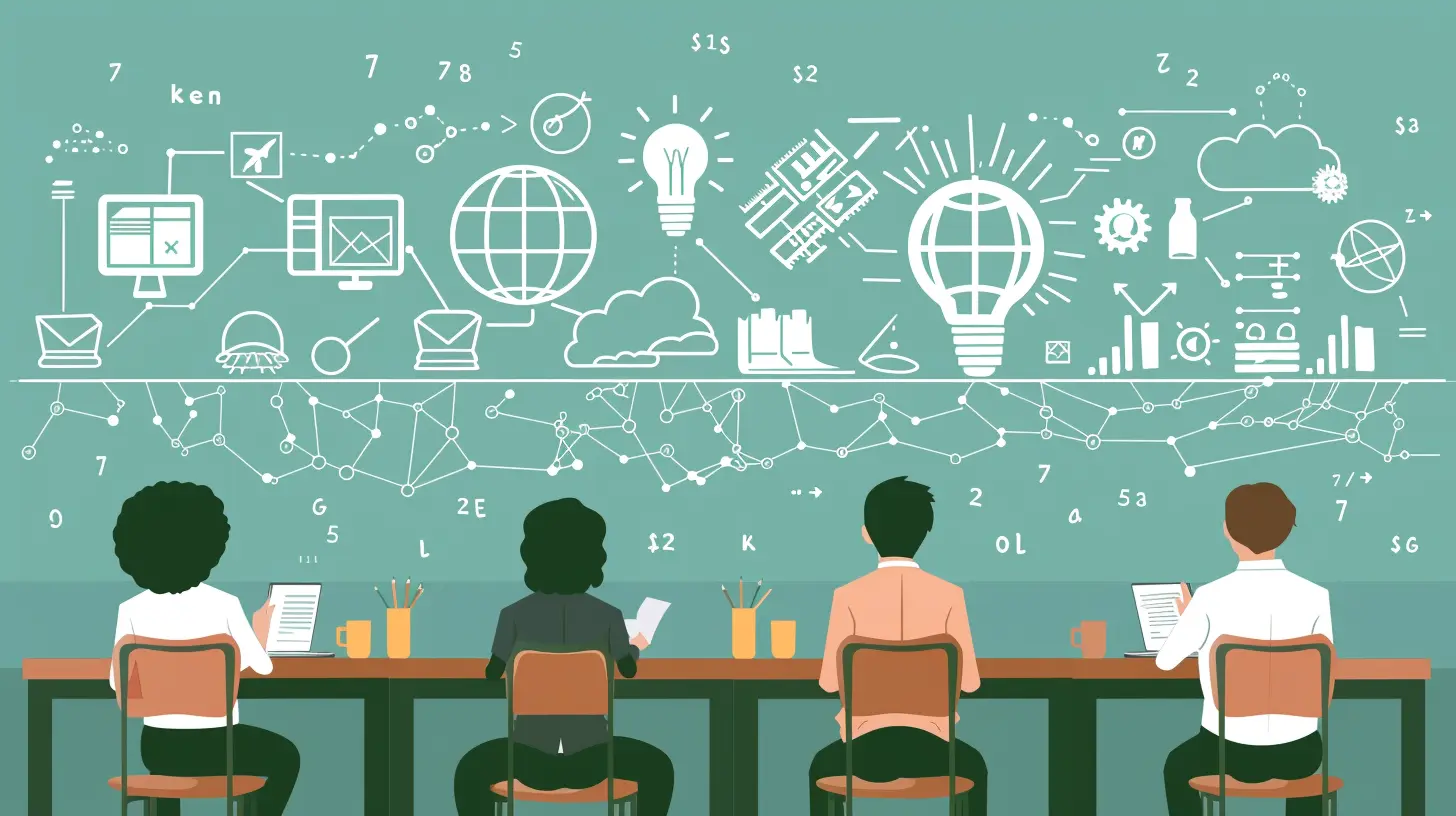How Cognitive Science Is Revolutionizing Education
13 February 2025
Imagine a world where education isn't just about memorizing facts, but about deeply understanding how the brain works to absorb, retain, and apply information. Sounds like a dream, right? Well, thanks to cognitive science, this is becoming a reality. Cognitive science—the study of how the brain processes information—has been making waves in various fields, and education is no exception. But how exactly is it transforming classrooms and learning environments across the globe?
In this article, we're going to dive deep into how cognitive science is revolutionizing education. By the end, you'll have a clear understanding of why this approach is so powerful, and maybe, just maybe, you'll start to see your own learning habits in a new light.

The Basics of Cognitive Science
Before we jump into the nitty-gritty of how cognitive science is changing education, let's start with the basics. What exactly is cognitive science?Cognitive science is an interdisciplinary field that combines elements of psychology, neuroscience, philosophy, linguistics, and computer science to understand how the human mind works. It studies processes like perception, attention, memory, reasoning, and decision-making. Essentially, cognitive scientists want to know how we think, learn, and remember.
Now, if you think about it, education is all about learning and remembering, right? So, it's no surprise that cognitive science has a lot to offer when it comes to improving teaching and learning methods.

The Connection Between Cognitive Science and Education
So how does cognitive science fit into education? At its core, education aims to help students learn and retain information. Cognitive science focuses on understanding how the brain does that. When you combine the two, you get a powerful partnership that can revolutionize the way we teach and learn.Cognitive scientists have spent decades studying how people learn best. Their findings have led to new strategies for teaching that are more effective and efficient. For example, research has shown that traditional methods like rote memorization (where you just repeat something over and over) aren't the most effective way to retain information. Instead, techniques like spaced repetition and retrieval practice have been shown to help students retain knowledge for longer periods of time.
In short, cognitive science provides a roadmap for educators to design more effective learning experiences. And the best part? These strategies are backed by science, not just tradition or guesswork.

Key Cognitive Science Principles Shaping Education
Let's break down some of the key principles from cognitive science that are making their way into the classroom.1. The Spacing Effect
Ever tried cramming for an exam the night before and then forgot everything a week later? That's because cramming doesn't work in the long term. The spacing effect is a cognitive science principle that suggests we remember information better when we review it over spaced intervals of time, rather than all at once.In education, this has led to the adoption of spaced repetition techniques. Instead of having students review content only once before a test, teachers are now structuring lessons to revisit topics multiple times across the school year. By spacing out the learning, students are more likely to retain the information in the long run.
2. Retrieval Practice
Another game-changer from cognitive science is retrieval practice. This is the idea that actively recalling information strengthens our ability to remember it. In other words, the more you practice pulling information from your brain, the better you get at remembering it.Think of your brain like a muscle. Just like lifting weights helps build physical strength, retrieval practice helps build "memory strength." Educators are now incorporating quizzes, flashcards, and other recall activities into their lessons to help students reinforce their learning.
3. Cognitive Load Theory
Ever felt overwhelmed by too much information at once? That's cognitive overload, and it's a real problem in education. Cognitive Load Theory (CLT) explains that there’s a limit to how much new information our brains can process at one time.In the classroom, this means teachers need to be mindful of not overwhelming students with too much information at once. They can break lessons into smaller, more manageable chunks to prevent cognitive overload. This way, students can focus on understanding one concept at a time before moving on to the next.
4. The Power of Metacognition
Metacognition is a fancy word for thinking about thinking. It involves being aware of your own learning processes and strategies. Cognitive science has shown that students who practice metacognition—such as by asking themselves what they know and what they need to work on—tend to perform better academically.Incorporating metacognitive strategies into education means teaching students to reflect on their learning, set goals, and monitor their progress. This not only helps them become better learners but also fosters a growth mindset, where they see challenges as opportunities to improve.
5. The Importance of Feedback
According to cognitive science, feedback is crucial for learning. But not all feedback is created equal. The most effective feedback is specific, timely, and actionable. Telling a student, "Good job" or "Try harder" isn't very helpful. Instead, feedback like "You correctly used this strategy, but you missed this key detail" helps students understand where they went wrong and how to improve.Incorporating detailed feedback into education helps students learn more effectively and correct mistakes before they become ingrained.

How Cognitive Science Is Changing Classrooms
So, what does all this look like in practice? Cognitive science principles are being applied in classrooms in a variety of ways, from lesson design to assessment methods.1. Active Learning Environments
Gone are the days of passive learning, where students just sit and listen to a lecture. Cognitive science tells us that active learning—where students are engaging with the material, asking questions, and solving problems—is far more effective. This has led to the rise of flipped classrooms, group discussions, and hands-on activities that encourage students to actively participate in their learning.2. Personalized Learning
Thanks to cognitive science, educators are increasingly moving toward personalized learning. Instead of a one-size-fits-all approach, teachers are using data and cognitive principles to tailor lessons to individual students' needs. For example, students who struggle with a particular concept might receive extra practice through spaced repetition, while those who grasp it quickly can move on to more advanced material.3. Technology as a Learning Tool
Technology has become a powerful ally in applying cognitive science to education. Educational apps, games, and platforms are now designed with cognitive science principles in mind. For example, some apps use spaced repetition algorithms to help students retain information, while others offer immediate feedback to reinforce learning.4. Rethinking Assessments
Traditional assessments like multiple-choice tests are increasingly being replaced by more dynamic forms of assessment that align with cognitive science principles. For example, instead of just testing what students can memorize, assessments now focus on problem-solving, critical thinking, and the ability to apply knowledge in new contexts. These methods better reflect a student's true understanding and ability to transfer knowledge to real-world situations.The Future of Cognitive Science in Education
The integration of cognitive science in education is still in its early stages, but the potential is enormous. As we learn more about how the brain works, we'll continue to refine and improve educational practices. Imagine schools where every lesson is designed to maximize retention, where students are empowered to take control of their own learning, and where technology seamlessly supports cognitive science-based teaching strategies. We're not there yet, but we're getting closer every day.In the future, we might see even more sophisticated applications of cognitive science in education. For example, artificial intelligence could be used to create personalized learning plans that adapt in real-time based on how well a student is retaining information. Virtual reality could be used to immerse students in hands-on learning experiences that are specifically designed to engage their cognitive processes.
Whatever the future holds, one thing is clear: cognitive science is here to stay, and it’s going to continue transforming education for the better.
Conclusion
So, how is cognitive science revolutionizing education? In more ways than one. From helping us understand how memory works to shaping more effective teaching strategies, cognitive science is paving the way for a brighter, smarter future in education. By applying principles like the spacing effect, retrieval practice, and metacognition, educators can help students learn more effectively and retain information longer.The beauty of cognitive science is that it’s backed by research, meaning that the strategies being used in classrooms today aren’t based on guesswork—they’re based on a deep understanding of how the brain learns. And as we continue to learn more about how our minds work, the possibilities for improving education are endless.
To put it simply, cognitive science is more than just a trend—it’s a revolution. And it’s changing the way we learn, one brain at a time.
all images in this post were generated using AI tools
Category:
Cognitive ScienceAuthor:

Janet Conrad
Discussion
rate this article
8 comments
Natalie McQuade
Fascinating insights! Excited to see how cognitive science reshapes learning experiences.
March 21, 2025 at 5:46 AM

Janet Conrad
Thank you! I'm glad you found it insightful. The potential of cognitive science in education is indeed exciting!
Zephyrine McFee
Empowering minds through understanding insights.
March 12, 2025 at 4:21 AM

Janet Conrad
Thank you! I appreciate your support for the role of cognitive science in enhancing educational practices.
Amelia Griffin
Finally, a way to make cramming feel like a brain workout!
March 7, 2025 at 4:19 AM

Janet Conrad
I'm glad you found it insightful! Turning cramming into a productive brain workout is a game-changer for effective learning.
Matilda McKellar
This article effectively highlights the transformative impact of cognitive science on education. By integrating insights from psychology into teaching methods, we can enhance learning outcomes and better support diverse student needs. It's an exciting time for educators to embrace these innovative approaches. Great read!
February 28, 2025 at 4:59 PM

Janet Conrad
Thank you for your thoughtful feedback! I'm glad you found the article insightful and relevant to current educational practices.
Sable Kline
This article highlights the transformative impact of cognitive science on education. It's refreshing to see evidence-based strategies gaining traction, but I hope educators embrace these insights to enhance learning experiences for all students.
February 23, 2025 at 5:47 AM

Janet Conrad
Thank you for your thoughtful comment! I share your hope that educators fully embrace these evidence-based strategies to foster a more effective and inclusive learning environment.
Stella Wheeler
Cognitive science offers valuable insights, enhancing teaching methods and student learning.
February 15, 2025 at 5:56 AM

Janet Conrad
Thank you! Indeed, cognitive science is transforming education by providing evidence-based strategies that improve both teaching and learning outcomes.
Skye McKeever
This article insightfully highlights the transformative impact of cognitive science on education. By integrating research on how students learn, educators can design more effective teaching strategies, ultimately fostering better retention and understanding. A promising direction for future learning!
February 14, 2025 at 5:49 PM

Janet Conrad
Thank you for your thoughtful comment! I'm glad you found the article's insights on cognitive science's role in enhancing education valuable. Your support for future learning initiatives is greatly appreciated!
Sorin Malone
Cognitive science isn’t just changing education; it’s shattering outdated practices. Embrace this revolution or get left behind. Educators must adapt swiftly to harness these insights for genuine progress. The future demands it.
February 13, 2025 at 3:22 PM

Janet Conrad
Thank you for your insightful comment! Indeed, embracing cognitive science is essential for transforming education and ensuring that we meet the needs of modern learners. Adaptation is key!
MORE POSTS

How to Cultivate Emotional Safety in a Relationship

The Prefrontal Cortex and Self-Control: Mastering Impulses

Psychoanalysis in the Modern World: Does Freud Still Matter?

How to Cultivate Mental Strength by Embracing Setbacks

Understanding Flashbacks: Why Trauma Resurfaces

How Mindfulness Can Help You Cope with Uncertainty